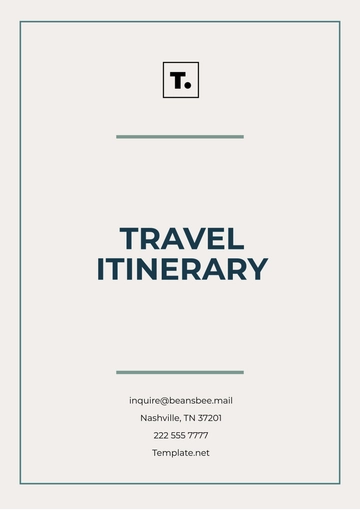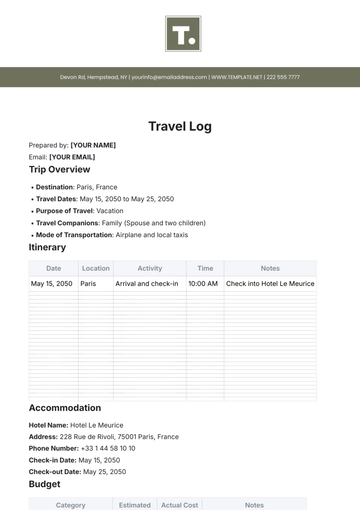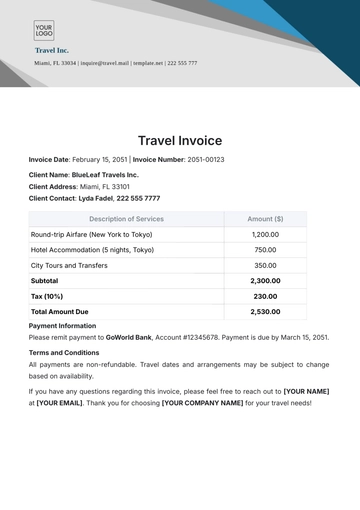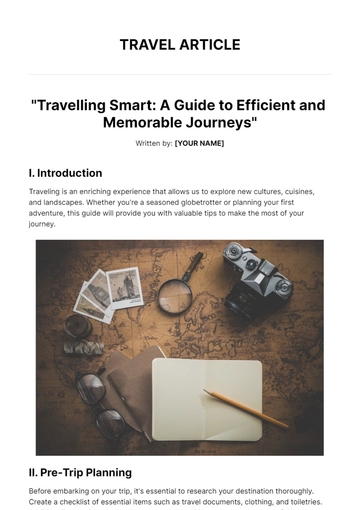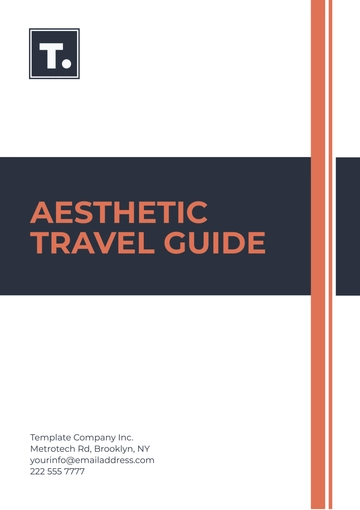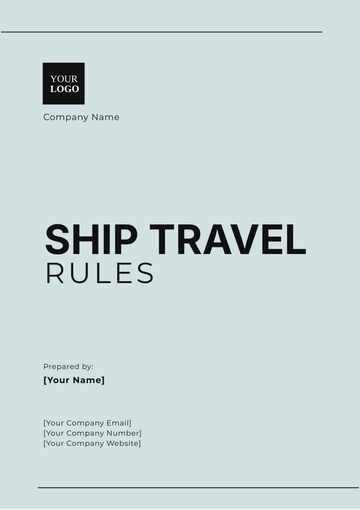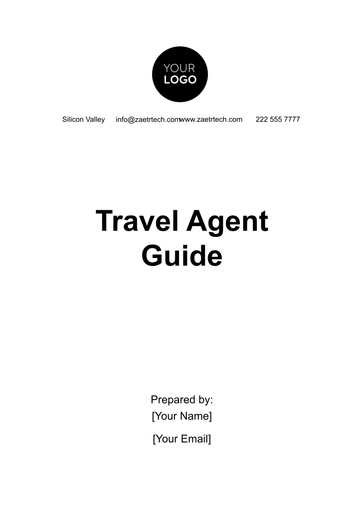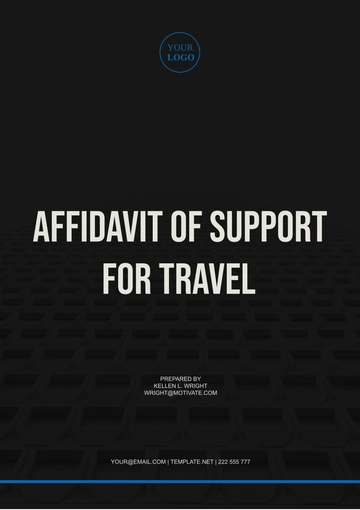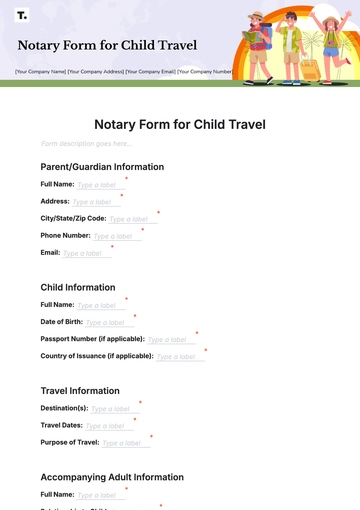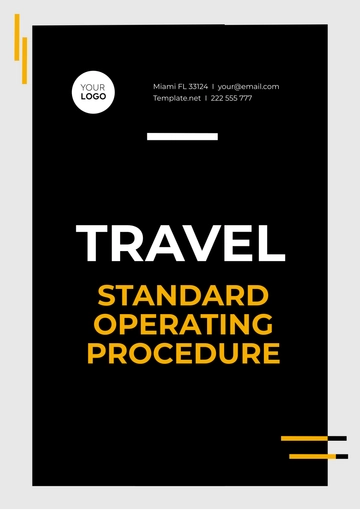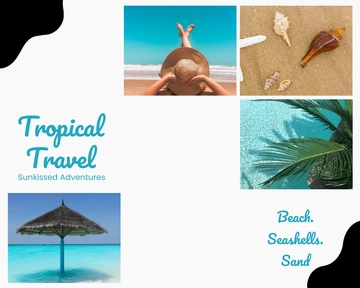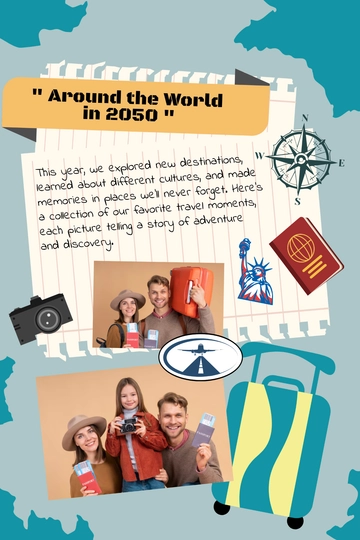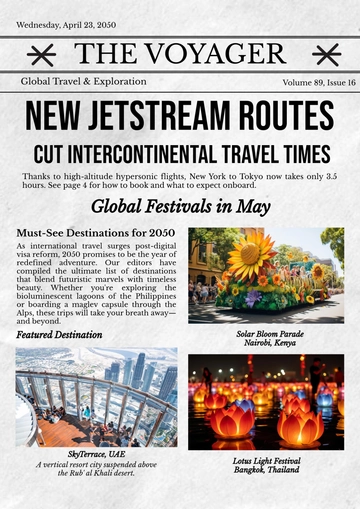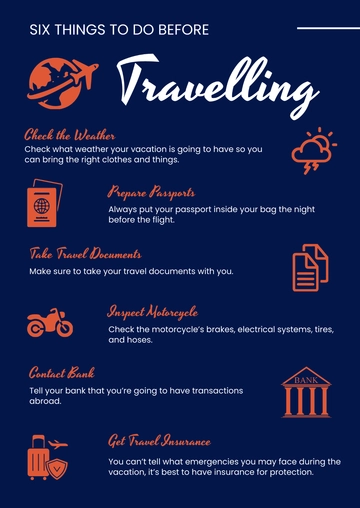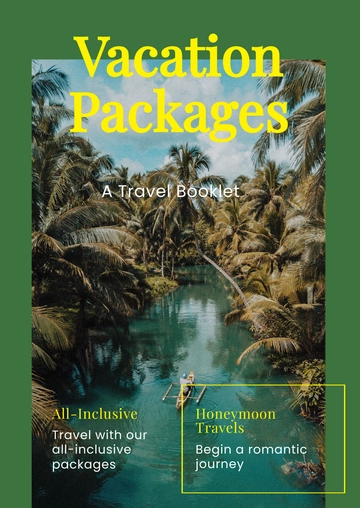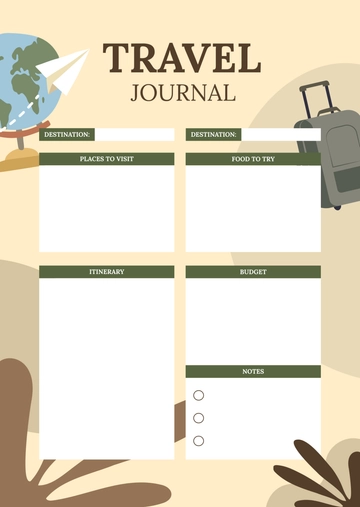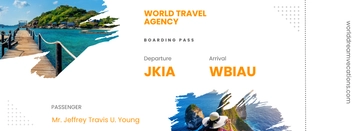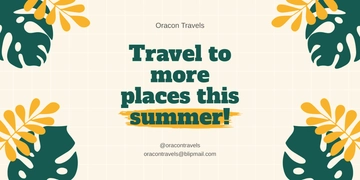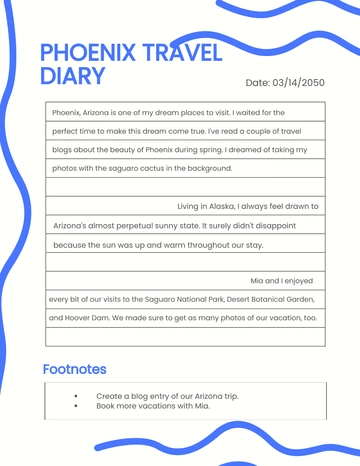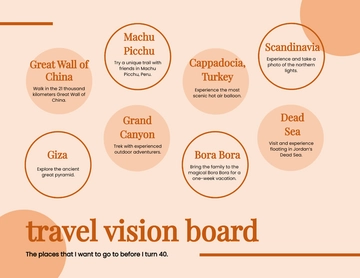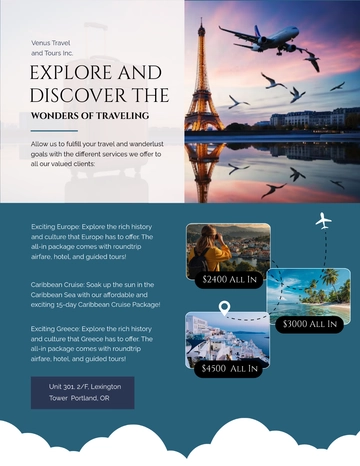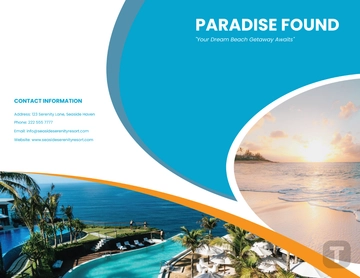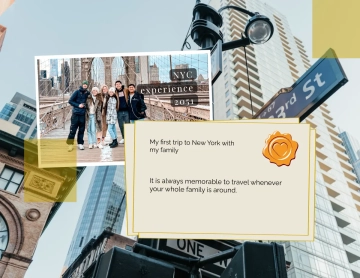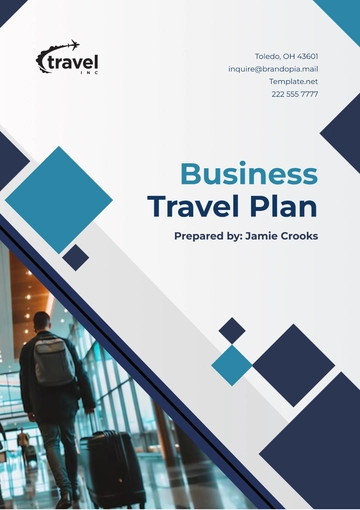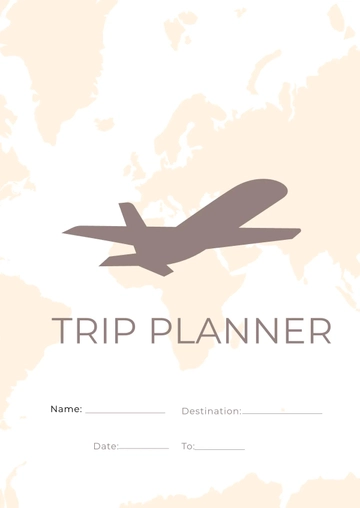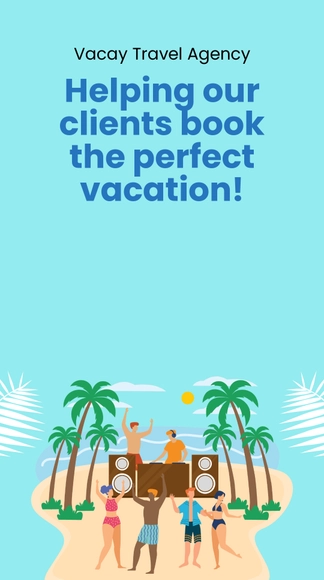Free Travel Agency Marketing Strategy
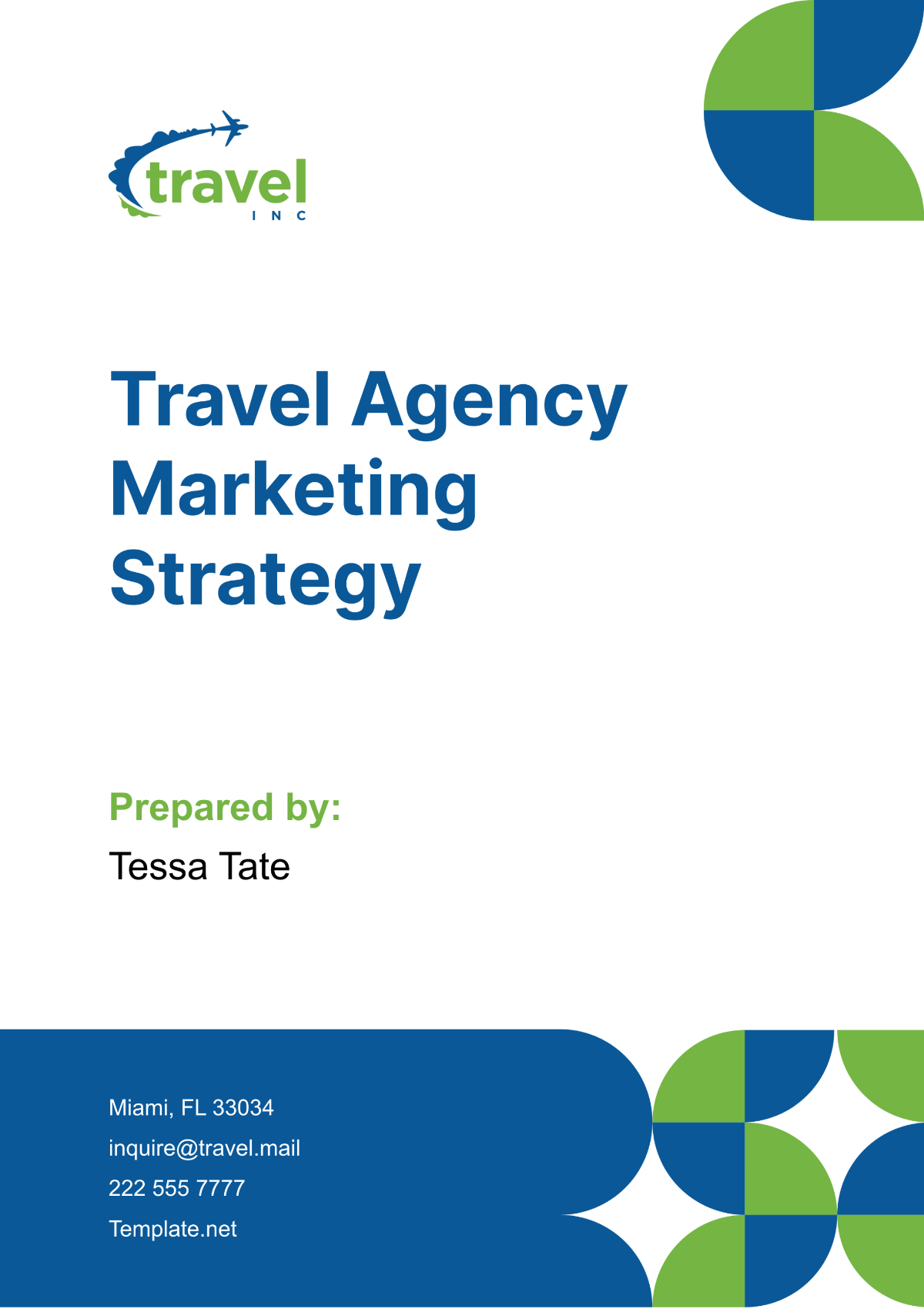
I. Executive Summary
A. Overview
[Your Company Name] is a leading travel agency specializing in personalized travel experiences for discerning travelers. With over a decade of industry expertise, we have established a reputation for excellence in customer service and destination expertise. Our mission is to inspire and facilitate unforgettable journeys for our clients, ensuring every aspect of their travel experience exceeds expectations.
B. Objectives
Increase brand awareness by 25% within the next fiscal year through targeted marketing initiatives and strategic partnerships.
Achieve a 15% year-over-year growth in online bookings by enhancing the user experience on our digital platforms and implementing innovative booking solutions.
Expand our customer base by targeting new demographics, including adventure travelers, luxury seekers, and eco-conscious explorers.
C. Key Strategies
Implement targeted digital marketing campaigns across multiple channels, including social media, email, and search engines, to reach and engage our target audience.
Enhance customer engagement and satisfaction through personalized travel planning services and tailored recommendations based on individual preferences.
Strengthen partnerships with hotels, airlines, and tour operators to offer exclusive deals, amenities, and curated experiences to our clients.
II. Market Analysis
A. Industry Overview
The travel industry continues to evolve rapidly, driven by changing consumer preferences, technological advancements, and global economic trends. Despite challenges such as geopolitical instability and public health concerns, the demand for travel remains resilient, with travelers seeking authentic and immersive experiences.
According to the World Travel & Tourism Council (WTTC), the global travel and tourism sector contributed [$8.8 trillion] to the global GDP in [2023], accounting for [10.4%] of total GDP. This highlights the significant economic impact of the travel industry on a global scale.
With the rise of digitalization, travelers increasingly rely on online platforms and mobile apps to research, plan, and book their trips. This shift towards digital channels presents both opportunities and challenges for traditional travel agencies like [Your Company Name], emphasizing the importance of adapting to changing consumer behaviors and preferences.
B. Market Trends
Rise in Demand for Experiential Travel: Modern travelers seek unique and immersive experiences that allow them to connect with local culture, heritage, and nature. This trend has led to the popularity of experiential travel activities such as culinary tours, wildlife safaris, and cultural immersion programs.
Growing Preference for Sustainable Tourism: With increased awareness of environmental issues and social responsibility, travelers are increasingly opting for eco-friendly and sustainable travel options. This includes staying at eco-conscious accommodations, supporting local communities, and participating in conservation initiatives.
Shift Towards Online Booking Platforms: The proliferation of online travel agencies (OTAs) and meta-search engines has transformed the way travelers research, compare, and book travel products and services. This trend has led to increased price transparency, convenience, and competition within the online travel marketplace.
III. Target Audience
A. Demographic Segmentation
Millennials: Aged between 25 and 40, tech-savvy, and adventurous individuals seeking authentic travel experiences. They value experiences over material possessions and are willing to spend on unique and Instagram-worthy vacations.
Baby Boomers: Aged between 55 and 75, empty nesters or retirees looking to indulge in luxury travel experiences. They prioritize comfort, convenience, and relaxation, often opting for all-inclusive resorts or cruise vacations.
Families: Parents with children aged 5 to 15, seeking family-friendly destinations and activities. They prioritize safety, affordability, and entertainment options suitable for all family members.
B. Psychographic Segmentation
Adventure Seekers: Thrill-seekers and adrenaline junkies looking for adventurous activities such as skydiving, scuba diving, and hiking. They value excitement, challenge, and the opportunity to push their limits.
Relaxation Enthusiasts: Stressed-out professionals and individuals seeking tranquility and rejuvenation. They prefer secluded beach resorts, spa retreats, and wellness-focused destinations where they can unwind and recharge.
Culture Explorers: History buffs, art enthusiasts, and cultural aficionados interested in immersing themselves in local culture, traditions, and heritage. They enjoy exploring museums, historic sites, and attending cultural events and festivals.
IV. Marketing Strategies
A. Digital Marketing
Social Media Marketing:
Utilize platforms such as Instagram, Facebook, and TikTok to showcase visually appealing travel destinations, share user-generated content, and engage with followers through interactive posts, polls, and contests.
Content Marketing:
Create engaging blog posts, articles, videos, and podcasts that provide valuable travel tips, destination guides, and insider recommendations. Collaborate with travel influencers and content creators to expand reach and credibility.
B. Search Engine Optimization (SEO)
Optimize website content and metadata:
Conduct keyword research to identify relevant search terms and phrases related to travel destinations, activities, and services. Incorporate targeted keywords naturally into website copy, meta titles, descriptions, and alt tags to improve search engine visibility and rankings.
Implement a content strategy:
Regularly publish high-quality, informative content that addresses common traveler questions, concerns, and interests. This includes destination guides, travel itineraries, packing lists, and travel tips tailored to different audience segments.
C. Email Marketing
Develop targeted email campaigns:
Segment email subscribers based on demographics, past behavior, and preferences to deliver personalized content, offers, and recommendations. Use automation tools to send triggered emails based on specific actions, such as abandoned cart reminders, booking confirmations, and post-trip follow-ups.
Nurture customer relationships:
Build rapport with subscribers by providing valuable content, exclusive discounts, and special promotions. Encourage engagement and feedback through interactive email elements, such as surveys, quizzes, and interactive maps.
V. Sales Strategies
A. Online Booking Platform
Enhance User Experience:
Conduct a comprehensive review of the online booking platform to identify areas for improvement in navigation, usability, and functionality. Implement user-friendly design elements, intuitive booking processes, and responsive layouts to optimize the user experience across desktop and mobile devices.
Offer Exclusive Deals:
Create special promotions and package deals available exclusively through the online booking platform to incentivize direct bookings and drive online traffic. Highlight value-added perks such as room upgrades, complimentary amenities, and flexible cancellation policies to entice customers to book directly.
B. Customer Relationship Management (CRM)
Implement CRM System:
Invest in a robust customer relationship management (CRM) system to centralize customer data, track interactions, and personalize communication. Choose a CRM platform with features such as contact management, lead scoring, email integration, and automation capabilities to streamline customer engagement and retention efforts.
Personalize Communication:
Leverage customer data and insights gathered through the CRM system to deliver personalized communication and offers tailored to individual preferences and behavior. Use segmentation, dynamic content, and triggered workflows to send targeted emails, notifications, and recommendations based on past interactions and purchase history.
VI. Partnerships and Collaborations
A. Hotel Partnerships
Negotiate Exclusive Deals:
Establish strategic partnerships with a select group of hotels and resorts to secure exclusive deals, discounts, and perks for [Your Company Name] clients. Negotiate favorable terms and conditions, including preferential rates, room upgrades, complimentary breakfast, and flexible booking policies to enhance the value proposition for customers.
Cross-Promote Services:
Collaborate with hotel partners to cross-promote [Your Company Name] services through joint marketing initiatives, co-branded campaigns, and reciprocal referrals. Explore opportunities for co-hosting events, sponsoring local activities, and participating in industry trade shows to increase brand visibility and drive customer acquisition.
B. Airline Partnerships
Forge Strategic Alliances:
Establish strategic alliances with major airlines and aviation partners to offer bundled travel packages, discounted airfares, and enhanced travel experiences for [Your Company Name] clients. Develop mutually beneficial partnerships that leverage each partner's strengths and resources to deliver value-added services, such as priority boarding, lounge access, and seamless connections.
Collaborate on Marketing Campaigns:
Collaborate with airline partners on joint marketing campaigns, co-branded advertisements, and promotional offers to reach a wider audience and drive sales. Leverage each partner's marketing channels, including websites, social media, email newsletters, and inflight magazines, to maximize exposure and generate interest in [Your Company Name] products and services.
VII. Budget Allocation
A. Digital Marketing: [$50,000]
This budget will be allocated towards digital advertising campaigns on platforms such as Google Ads, Facebook Ads, and Instagram Ads to increase brand visibility, drive website traffic, and generate leads.
B. Search Engine Optimization (SEO): [$20,000]
The SEO budget will cover expenses related to keyword research, website optimization, content creation, and link building activities aimed at improving organic search rankings and increasing website visibility.
C. Email Marketing: [$15,000]
Funds will be allocated towards email marketing software, email list management, and content creation for email campaigns, including newsletters, promotional offers, and automated follow-up sequences.
D. Sales Platform Development: [$30,000]
This budget will be used to invest in the development and enhancement of the online booking platform, including website redesign, user experience improvements, and integration of CRM and booking management systems.
E. Partnerships and Collaborations: [$25,000]
Funds will be allocated towards partnership development, including travel agency commissions, incentive programs, and marketing collateral for hotel and airline partners.
Strategy | Budget Allocation |
|---|---|
Digital Marketing | [$50,000] |
Search Engine Optimization | [$20,000] |
Email Marketing | [$15,000] |
Sales Platform Development | [$30,000] |
Partnerships and Collaborations | [$25,000] |
VIII. Implementation Timeline
A. Q2 2024: Launch Targeted Digital Marketing Campaigns
Initiate digital advertising campaigns across Google Ads, Facebook Ads, and Instagram Ads targeting key audience segments with compelling ad creatives and messaging.
B. Q3 2024: Implement Website Optimization for Improved SEO
Conduct a comprehensive SEO audit of the website and implement technical optimizations, on-page improvements, and content enhancements to improve search engine visibility and organic traffic.
C. Q4 2024: Roll Out Personalized Email Marketing Campaigns
Develop segmented email lists based on customer demographics, preferences, and behavior, and launch targeted email campaigns with personalized content, offers, and recommendations.
D. Q1 2025: Finalize Partnerships with Hotels and Airlines
Negotiate and finalize strategic partnerships with select hotel and airline partners, including contract agreements, exclusive deals, and joint marketing initiatives.
E. Q2 2025: Evaluate Performance and Make Necessary Adjustments
Conduct a comprehensive performance review of marketing campaigns, partnerships, and sales initiatives, and make data-driven adjustments and optimizations to improve effectiveness and ROI.
Quarter | Activities |
|---|---|
Q2 2024 | Launch Targeted Digital Marketing Campaigns |
Q3 2024 | Implement Website Optimization for Improved SEO |
Q4 2024 | Roll Out Personalized Email Marketing Campaigns |
Q1 2025 | Finalize Partnerships with Hotels and Airlines |
Q2 2025 | Evaluate Performance and Make Necessary Adjustments |
IX. Monitoring and Evaluation
A. Key Performance Indicators (KPIs)
Website Traffic:
Measure website traffic using tools such as Google Analytics to track the number of visitors, page views, and session duration. Monitor traffic sources, user behavior, and engagement metrics to identify trends and areas for improvement.
Conversion Rate:
Calculate conversion rates for different stages of the customer journey, including website visits, email sign-ups, and booking completions. Analyze conversion funnels and optimize conversion points to increase conversion rates and drive revenue.
Customer Satisfaction:
Gather feedback from customers through surveys, reviews, and testimonials to assess overall satisfaction levels. Monitor Net Promoter Score (NPS), customer ratings, and qualitative feedback to identify strengths and weaknesses in service delivery.
B. Regular Monitoring and Analysis
Conduct regular monitoring and analysis of KPIs to track the effectiveness of marketing strategies and initiatives. Set up automated reporting dashboards to streamline data collection and analysis processes. Identify trends, patterns, and outliers in performance metrics and take proactive measures to address issues and capitalize on opportunities.
C. Continuous Improvement
Utilize insights from monitoring and evaluation efforts to drive continuous improvement and optimization of marketing activities. Implement A/B testing, experimentation, and iterative changes to refine strategies, messaging, and targeting. Stay agile and adaptable in response to market dynamics, customer feedback, and competitive pressures.
X. Conclusion
[Your Company Name] is poised to leverage its comprehensive marketing strategy to achieve business objectives and exceed customer expectations in the dynamic travel industry. By implementing targeted digital marketing campaigns, enhancing customer engagement through personalized experiences, and forging strategic partnerships with hotels and airlines, we are well-positioned to capture market share and drive sustainable growth.
With a clear focus on monitoring and evaluation, [Your Company Name] will continuously assess the performance of its marketing efforts, identify areas for improvement, and make data-driven decisions to optimize ROI and enhance customer satisfaction. By prioritizing innovation, customer-centricity, and excellence, [Your Company Name] is committed to delivering exceptional travel experiences and becoming the preferred choice for travelers worldwide.
- 100% Customizable, free editor
- Access 1 Million+ Templates, photo’s & graphics
- Download or share as a template
- Click and replace photos, graphics, text, backgrounds
- Resize, crop, AI write & more
- Access advanced editor
Develop a comprehensive marketing strategy for your travel agency with Template.net's Travel Agency Marketing Strategy Template. This customizable document provides a structured framework for outlining your agency's marketing objectives, target audience, competitive analysis, and tactics across various channels such as social media, email, and content marketing. Editable in our Ai Editor Tool for seamless customization and integration into your marketing planning process.
